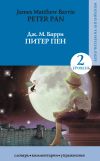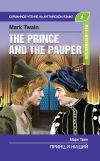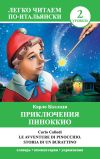Текст книги "Маленький принц / The Little Prince"

Автор книги: Антуан Сент-Экзюпери
Жанр: Иностранные языки, Наука и Образование
Возрастные ограничения: +6
сообщить о неприемлемом содержимом
Текущая страница: 2 (всего у книги 6 страниц) [доступный отрывок для чтения: 2 страниц]
9
The little prince decided to travel with a flock of wild birds. On the morning of his departure he put his planet in perfect order. He carefully cleaned out his active volcanoes. He had two active volcanoes; and they were very convenient to heat his breakfast in the morning. He also had one volcano that was extinct. But, as he said, “One never knows!” So he cleaned out the extinct volcano, too. If they are well cleaned out, volcanoes burn slowly and steadily, without any eruptions. Volcanic eruptions are like fires in a chimney.
On our earth we are too small to clean out our volcanoes. That is why they bring us so much trouble.
The little prince also pulled up the last little shoots of the baobabs. He did not want to return. And he watered the flower for the last time, and prepared to place her under the shelter of her glass globe.
“Goodbye,” he said to the flower.
But she made no answer.
“Goodbye,” he said again.
The flower coughed. But it was not because she had a cold.
“I was silly,” she said to him, at last. “Forgive me. Try to be happy.”
He was surprised. He stood there bewildered. He did not understand.
“Of course I love you,” the flower said to him. “It is my fault that you don’t know it. But this is not important. But you—you are as foolish as I. Try to be happy. Take the glass globe. I don’t want it any more.”
“But the wind—”
“My cold is not so bad. The cool night air will do me good[21]21
will do me good – пойдёт мне на пользу
[Закрыть]. I am a flower.”
“But the animals—”
“Well, I must meet two or three caterpillars if I wish to see the butterflies. It seems that they are very beautiful. And if not the butterflies—and the caterpillars—who will come to me? You will be far away. As for the large animals—I am not at all afraid of any of them. I have my claws.”
And she showed her four thorns. Then she added:
“Don’t hesitate. You decided to go away. Now go!”
She was a proud flower.
10
He found himself[22]22
found himself – оказался
[Закрыть] in the neighborhood of the asteroids 325, 326, 327, 328, 329, and 330. He began, therefore, to visit them.
The first of them was inhabited by a king. The king was in royal purple and ermine, and was sitting upon a throne which was at the same time both simple and majestic.
“Ah! Here is a subject[23]23
a subject – подданный
[Закрыть],” exclaimed the king, when he saw the little prince.
And the little prince asked himself:
“How does he recognize me?”
He did not know how the world is simple for kings. To them, all men are subjects.
“Approach, so that I may see you better,” said the king. He was very proud to be a king over somebody.
The little prince looked everywhere to find a place to sit down; but the entire planet was obstructed by the king’s magnificent robe. So he was standing upright, and, since he was tired, he yawned.
“It is contrary to etiquette to yawn in the presence of a king,” the monarch said to him. “I forbid you to do so.”
“Sorry, I can’t stop myself,” replied the little prince, embarrassed. “I came on a long journey, and I had no sleep.”
“Ah, then,” the king said. “I order you to yawn. Come, now! Yawn again! It is an order.”
“That frightens me. I cannot yawn any more,” murmured the little prince.
“Hum! Hum!” replied the king. “Then I—I order you sometimes to yawn and sometimes to—”
He seemed vexed. The king hated disobedience. He was an absolute monarch. But, because he was a very good man, he made his orders reasonable.
“If I ordered a general,” he said, “if I order a general to change himself into a bird, and if the general does not obey me, that is not the fault of the general. It is my fault.”
“May I sit down?” came a timid inquiry from the little prince.
“I order you to do so,” the king answered him.
But the little prince was wondering. The planet was tiny. Over what did this king really rule?
“Your majesty,” he said to him, “may I ask you a question—”
“I order you to ask me a question,” the king assured him.
“Your majesty, over what do you rule?”
“Over everything,” said the king, with magnificent simplicity.
“Over everything?”
The king made a gesture, which pointed at his planet, the other planets, and all the stars.
“Over all that?” asked the little prince.
“Over all that,” the king answered.
For his rule was not only absolute: it was also universal.
“And the stars obey you?”
“Certainly they do,” the king said. “They obey instantly. I do not permit insubordination.”
Such power was marveling. “If I am so powerful,” the little prince thought, “I will be able to watch the sunset, not forty-four times in one day, but seventy-two, or even a hundred, or even two hundred times.” And because he remembered his little planet, he asked the king a favor:
“I want to see a sunset. Do me that kindness. Order the sun to set.”
“If I order a general to fly from one flower to another like a butterfly, or to write a tragic drama, or to change himself into a bird, and if the general does not carry out the order[24]24
to carry out the order – выполнить приказ
[Закрыть], which one of us is wrong?” the king demanded. “The general, or myself?”
“You,” said the little prince firmly.
“Exactly. One must require from each one the duty which each one can perform,” the king said. “If you order your people to go and throw themselves into the sea[25]25
to throw themselves into the sea – броситься в море
[Закрыть], they will make a revolution. My orders are reasonable.”
“And what about my sunset?” the little prince reminded him.
“You will have your sunset. I shall command it. But I shall wait until conditions are favorable.”
“When will that be?” inquired the little prince.
“Hum! Hum!” replied the king; and he consulted a bulky almanac. “Hum! Hum! That will be about—about—that will be this evening about twenty minutes to eight!”
The little prince yawned. He was already a little bored.
“I have nothing more to do here,” he said to the king. “So I shall go away.”
“Do not go,” said the king, because wanted to have a subject. “Do not go. I will make you a Minister!”
“Minister of what?”
“Minister of—of Justice!”
“But there is nobody here to judge!”
“We do not know that,” the king said to him. “I did not make a complete tour of my kingdom. I am very old. And it is difficult for me to walk.”
“Oh, but I looked already!” said the little prince, He turned around to look at the other side of the planet. On that side, there was nobody at all.
“Then you will judge yourself,” the king answered. “that is the most difficult thing of all. It is much more difficult to judge oneself than to judge others. If you can judge yourself rightly, then you are indeed a man of true wisdom.”
“Yes,” said the little prince, “but I can judge myself anywhere. I do not need to live on this planet.”
“Hum! Hum!” said the king. “I believe that somewhere on my planet there is an old rat. I hear him at night. You can judge this old rat. From time to time you can condemn him to death[26]26
to condemn him to death – приговаривать его к смерти
[Закрыть]. Thus his life will depend on your justice. But you will pardon him. We don’t have any more rats.”
“I,” replied the little prince, “do not like to condemn anyone to death. And now I think I will go on my way.”
“No,” said the king.
But the little prince had no wish to grieve the old monarch.
“If Your Majesty wishes,” he said, “you can give me a reasonable order. It seems to me that conditions are favorable.”
As the king made no answer, the little prince hesitated a moment. Then, with a sigh, he went away.
“I make you my Ambassador,” the king shouted, hastily.
“The grown-ups are very strange,” the little prince said to himself, as he continued on his journey.
11
The second planet was inhabited by a conceited man[27]27
a conceited man – честолюбец
[Закрыть].
“Ah! Ah! This is my admirer!” he exclaimed from afar, when he saw the little prince.
Because, to conceited men, everyone is an admirer.
“Good morning,” said the little prince. “That is a queer hat you are wearing.”
“It is a hat for salutes,” the conceited man replied. “It is to raise in salute when people acclaim me. Unfortunately, nobody at all ever passes this way.”
“Yes?” said the little prince, who did not understand what the conceited man was talking about.
“Clap your hands,” the conceited man now directed him.
The little prince clapped his hands. The conceited man raised his hat in a modest salute.
“This is more entertaining than the visit to the king,” the little prince said to himself. And he began again to clap his hands. The conceited man again raised his hat in salute.
After five minutes of this exercise the little prince was tired.
“And what must one do to make the hat come down?” he asked.
But the conceited man did not hear him. Conceited people never hear anything but praise.
“Do you really admire me very much?” he demanded of the little prince.
“What does that mean—‘admire’?”
“To admire means that you regard me as the handsomest, the best-dressed, the richest, and the most intelligent man on this planet.”
“But you are the only man on your planet!”
“Do me this kindness. Admire me!”
“I admire you,” said the little prince, “but what is there in that to interest you so much?”
And the little prince went away.
“The grown-ups are certainly very odd,” he said to himself, as he continued on his journey.
12
The next planet was inhabited by a tippler. This was a very short visit, but it made the little prince very sad.
“What are you doing there?” he said to the tippler. The tippler was sitting in silence before a collection of empty bottles and also a collection of full bottles.
“I am drinking,” replied the tippler.
“Why are you drinking?” demanded the little prince.
“So that I may forget,” replied the tippler.
“Forget what?” inquired the little prince, who already was sorry for him.
“Forget that I am ashamed,” the tippler answered.
“Ashamed of what?” insisted the little prince, who wanted to help him.
“Ashamed of drinking!” The tippler brought his speech to an end.
And the little prince went away, puzzled.
“The grown-ups are certainly very, very odd,” he said to himself, as he continued on his journey.
13
The fourth planet belonged to a businessman. This man was so busy that he did not even raise his head at the little prince’s arrival.
“Good morning,” the little prince said to him. “Your cigarette went out.”
“Three and two make five. Five and seven make twelve. Twelve and three make fifteen. Good morning. Fifteen and seven make twenty-two. Twenty-two and six make twenty-eight. I have no time to light it again. Twenty-six and five make thirty-one. Phew![28]28
Phew! – Уф!
[Закрыть] Then that makes five-hundred-and-one million, six-hundred-twenty-two-thousand, seven-hundred-thirty-one.”
“Five hundred million what?” asked the little prince.
“Eh? Are you still there? Five-hundred-and-one million—I can’t stop. I have so much to do! I am concerned with matters of consequence. I hate balderdash. Two and five make seven.”
“Five-hundred-and-one million what?” repeated the little prince.
The businessman raised his head.
“During the fifty-four years I was disturbed only three times. The first time was twenty-two years ago, when a cockchafer fell down. He made the most frightful noise that resounded all over the place, and I made four mistakes in my addition. The second time, eleven years ago, I was disturbed by an attack of rheumatism. I don’t get enough exercise. I have no time. The third time—well, this is it! I was saying, then, five-hundred-and-one millions—”
“Millions of what?”
Finally the businessman answered this question.
“Millions of those little objects,” he said, “which one sometimes sees in the sky.”
“Flies?”
“Oh, no. Little golden objects.”
“Bees?”
“Oh, no. Little glittering objects that set lazy men to idle dreaming. As for me, I am concerned with matters of consequence. There is no time for idle dreaming in my life.”
“Ah! You mean the stars?”
“Yes, that’s it. The stars.”
“And what do you do with five-hundred millions of stars?”
“Five-hundred-and-one million, six-hundred-twenty-two thousand, seven-hundred-thirty-one. I am concerned with matters of consequence: I am accurate.”
“And what do you do with these stars?”
“What do I do with them?”
“Yes.”
“Nothing. I own them.”
“You own the stars?”
“Yes.”
“But I have already seen a king who—”
“Kings do not own, they reign over. It is a very different matter.”
“And what good does it do you to own the stars?”
“I am rich because of it.”
“And what good does it do you to be rich?”
“It makes it possible for me to buy more stars.”
“This man,” the little prince said to himself, “is like my poor tippler.”
Nevertheless, he had more questions.
“How is it possible for one to own the stars?”
“To whom do they belong?” the businessman retorted, peevishly.
“I don’t know. To nobody.”
“Then they belong to me, because I was the first person to think of it.”
“Is that all that is necessary?”
“Certainly. When you find a diamond that belongs to nobody, it is yours. When you discover an island that belongs to nobody, it is yours. When you get an idea before any one else, you write a patent: it is yours. So with me: I own the stars, because nobody else before me ever thought of them.”
“Yes, that is true,” said the little prince. “And what do you do with them?”
“I administer them,” replied the businessman. “I count them and recount them. It is difficult. But I am a man who is naturally interested in matters of consequence.”
The little prince was still not satisfied.
“If I own a silk scarf,” he said, “I can put it around my neck and take it away with me. If I own a flower, I can pluck that flower and take it away with me. But you cannot pluck the stars from heaven.”
“No. But I can put them in the bank.”
“Whatever does that mean?”
“That means that I write the number of my stars on a little paper. And then I put this paper in a drawer and lock it with a key.”
“And that is all?”
“That is enough,” said the businessman.
“It is entertaining,” thought the little prince. “It is rather poetic. But it is not serious.”
The little prince’s ideas were very different from those of the grown-ups.
“I myself own a flower,” he continued his conversation with the businessman, “which I water every day. I own three volcanoes, which I clean out every week (I also clean out the one that is extinct; one never knows). It is good for my volcanoes, and it is good for my flower, I really own them. But there is no good for your stars.”
The businessman opened his mouth, but he found nothing to say in answer. And the little prince went away.
“The grown-ups are certainly extraordinary,” he said simply as he continued on his journey.
14
The fifth planet was very strange. It was the smallest of all. There was just enough room on it for a street lamp and a lamplighter. The little prince was not able to reach any explanation of the use of a street lamp and a lamplighter, somewhere in the heavens, on a planet which had no people, and not one house. But he said to himself, nevertheless:
“Maybe this man is absurd. But he is not so absurd as the king, the conceited man, the businessman, and the tippler. For at least his work has some meaning. When he lights his street lamp, it is as if he brings one more star to life, or one flower. When he puts out his lamp, he sends the flower, or the star, to sleep. That is a beautiful occupation. And since it is beautiful, it is truly useful.”
When he arrived on the planet he respectfully saluted the lamplighter.
“Good morning. Why did you put out your lamp?”
“Those are the orders,” replied the lamplighter. “Good morning.”
“What are the orders?”
“The orders are that I put out my lamp. Good evening.”
And he lighted his lamp again.
“But why did you light it again?”
“Those are the orders,” replied the lamplighter.
“I do not understand,” said the little prince.
“There is nothing to understand,” said the lamplighter. “Orders are orders. Good morning.”
And he put out his lamp.
Then he mopped his forehead with a handkerchief.
“My profession is terrible. In the old days it was reasonable. I put the lamp out in the morning, and in the evening I lighted it again. I had the rest of the day for relaxation and the rest of the night for sleep.”
“And the orders were changed?”
“The orders were not changed,” said the lamplighter. “That is the tragedy! From year to year the planet turns more rapidly and the orders are not changed!”
“Then what?” asked the little prince.
“Then—the planet now makes a complete turn every minute, and I no longer have a single second for repose. Once every minute I must light my lamp and put it out!”
“That is very funny! A day lasts only one minute, here where you live!”
“It is not funny at all!” said the lamplighter. “While we were talking together a month passed by.”
“A month?”
“Yes, a month. Thirty minutes. Thirty days. Good evening.”
And he lighted his lamp again.
As the little prince watched him, he felt that he loved this lamplighter who was so faithful to his orders. He wanted to help him.
“You know,” he said, “I can tell you how you can rest whenever you want to.”
“I always want to rest,” said the lamplighter.
For it is possible for a man to be faithful and lazy at the same time.
The little prince went on with his explanation:
“Your planet is very small. To be always in the sunshine, you need only walk along rather slowly. When you want to rest, you will walk—and the day will last as long as you like.”
“That is impossible,” said the lamplighter. “The one thing I love in life is to sleep.”
“Then you’re unlucky,” said the little prince.
“I am unlucky,” said the lamplighter. “Good morning.”
And he put out his lamp.
“That man,” said the little prince to himself, as he continued farther on his journey, “that man will be scorned by all the others[29]29
that man will be scorned by all the others – этого человека все остальные будут презирать
[Закрыть]: by the king, by the conceited man, by the tippler, by the businessman. Nevertheless he is the only one of them all who does not seem to me ridiculous. Perhaps because he is thinking of something else besides himself.”
He said to himself, again:
“That man is the only one of them all whom I can make my friend. But his planet is indeed too small. There is no room on it for two people.”
The little prince was sorry to leave this planet, because every day it was possible to watch 1440 sunsets!
15
The sixth planet was ten times larger than the last one. It was inhabited by an old gentleman who wrote voluminous books.
“Oh, look! Here is an explorer!” he exclaimed to himself when he saw the little prince. The little prince sat down on the table. He traveled so much and so far!
“Where do you come from?” the old gentleman said to him.
“What is that big book?” said the little prince. “What are you doing?”
“I am a geographer,” said the old gentleman.
“What is a geographer?” asked the little prince.
“A geographer is a scholar who knows the location of all the seas, rivers, towns, mountains, and deserts.”
“That is very interesting,” said the little prince. “Here at last is a man who has a real profession!” And he cast a look around him at the planet of the geographer. It was the most magnificent planet.
“Your planet is very beautiful,” he said. “Has it any oceans?”
“I can’t tell you,” said the geographer.
“Ah!” The little prince was disappointed. “Has it any mountains?”
“I can’t tell you,” said the geographer.
“And towns, and rivers, and deserts?”
“I can’t tell you that, either.”
“But you are a geographer!”
“Exactly,” the geographer said. “But I am not an explorer. I haven’t a single explorer on my planet. It is not the geographer who goes out to count the towns, the rivers, the mountains, the seas, the oceans, and the deserts. The geographer is a very important person to loaf about. He does not leave his desk. But he receives the explorers in his study. He asks them questions, and he notes down what they say. And anyone among them seems interesting to him, the geographer inquires into that explorer’s character.”
“Why is that?”
“Because an explorer who lies will bring disaster on the books of the geographer. So will an explorer who drinks too much.”
“Why is that?” asked the little prince.
“Because intoxicated men see double. Then the geographer will note down two mountains in a place where there is only one.”
“I know someone,” said the little prince, “who will be a bad explorer.”
“That is possible. Then, when the character is good, one inquiries into his discovery.”
“One goes to see it?”
“No. That is too complicated. But one requires proofs. For example, if the discovery is a large mountain, one requires large stones from it.”
The geographer was suddenly excited.
“But you—you come from far away! You are an explorer! You will describe your planet to me!”
The geographer opened his big register, and sharpened his pencil.
“Well?” said the geographer expectantly.
“Oh, where I live,” said the little prince, “it is not very interesting. It is all so small. I have three volcanoes. Two volcanoes are active and the other is extinct. But one never knows.”
“One never knows,” said the geographer.
“I have also a flower.”
“We do not record flowers,” said the geographer.
“Why is that? The flower is the most beautiful thing on my planet!”
“We do not record them,” said the geographer, “because they are ephemeral.”
“What does that mean—‘ephemeral’?”
“Geographies,” said the geographer, “are the books which, of all books, are most concerned with matters of consequence. They never become old-fashioned. It is very rarely that a mountain changes its position. It is very rarely that an ocean empties itself of its waters. We write of eternal things.”
“But extinct volcanoes may come to life again,” the little prince interrupted. “What does that mean—‘ephemeral’?”
“Whether volcanoes are extinct or alive, it is the same thing for us,” said the geographer. “The thing that matters to us is the mountain. It does not change.”
“But what does that mean—‘ephemeral’?” repeated the little prince.
“It means, ‘that, which will disappear fast.’”
“Will my flower disappear fast?”
“Certainly.”
“My flower is ephemeral,” the little prince said to himself, “and she has only four thorns to defend herself against the world. And I left her on my planet, all alone!”
That was his first moment of regret.
“What place will you advise me to visit now?” he asked.
“The planet Earth,” replied the geographer. “It has a good reputation.”
And the little prince went away.
Внимание! Это не конец книги.
Если начало книги вам понравилось, то полную версию можно приобрести у нашего партнёра - распространителя легального контента. Поддержите автора!Правообладателям!
Данное произведение размещено по согласованию с ООО "ЛитРес" (20% исходного текста). Если размещение книги нарушает чьи-либо права, то сообщите об этом.Читателям!
Оплатили, но не знаете что делать дальше?








































